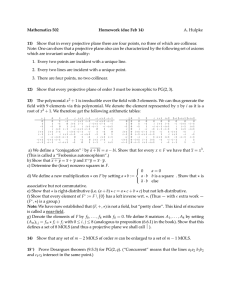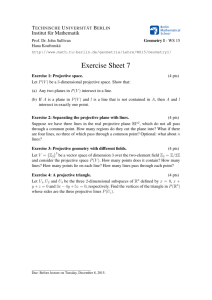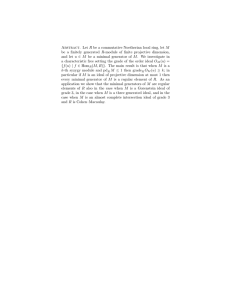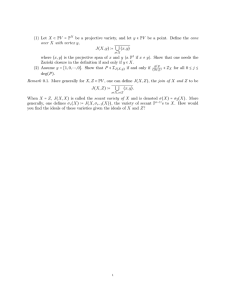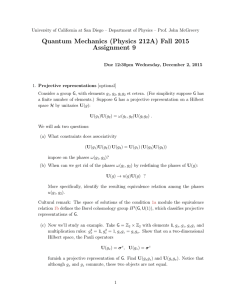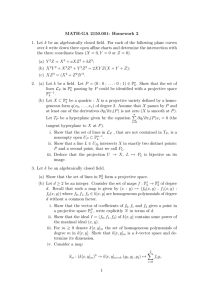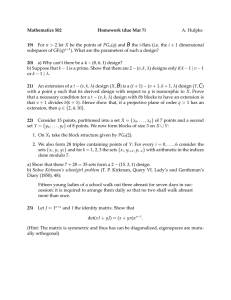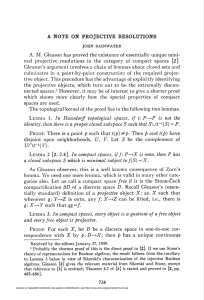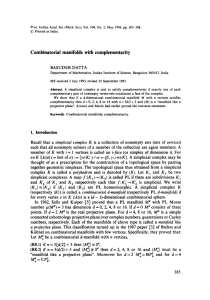= − + ≥
advertisement
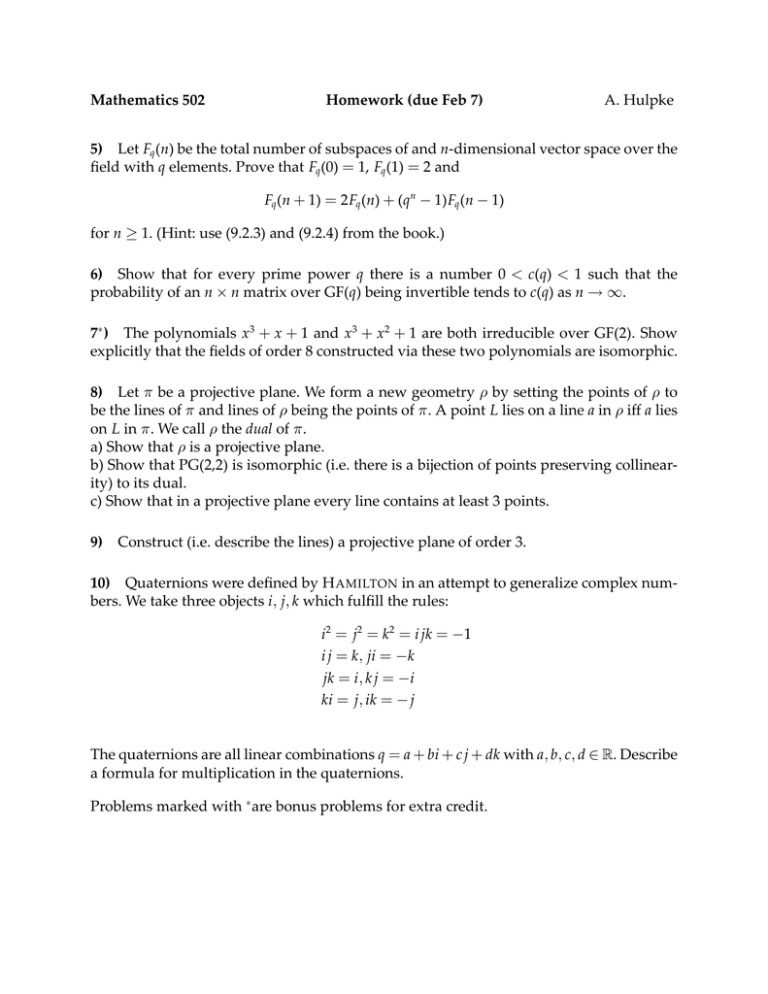
Mathematics 502 Homework (due Feb 7) A. Hulpke 5) Let Fq (n) be the total number of subspaces of and n-dimensional vector space over the field with q elements. Prove that Fq (0) = 1, Fq (1) = 2 and Fq (n + 1) = 2Fq (n) + (qn − 1)Fq (n − 1) for n ≥ 1. (Hint: use (9.2.3) and (9.2.4) from the book.) 6) Show that for every prime power q there is a number 0 < c(q) < 1 such that the probability of an n × n matrix over GF(q) being invertible tends to c(q) as n → ∞. 7∗ ) The polynomials x3 + x + 1 and x3 + x2 + 1 are both irreducible over GF(2). Show explicitly that the fields of order 8 constructed via these two polynomials are isomorphic. 8) Let π be a projective plane. We form a new geometry ρ by setting the points of ρ to be the lines of π and lines of ρ being the points of π . A point L lies on a line a in ρ iff a lies on L in π . We call ρ the dual of π . a) Show that ρ is a projective plane. b) Show that PG(2,2) is isomorphic (i.e. there is a bijection of points preserving collinearity) to its dual. c) Show that in a projective plane every line contains at least 3 points. 9) Construct (i.e. describe the lines) a projective plane of order 3. 10) Quaternions were defined by H AMILTON in an attempt to generalize complex numbers. We take three objects i, j, k which fulfill the rules: i2 = j2 = k2 = i jk = −1 i j = k, ji = −k jk = i, k j = −i ki = j, ik = − j The quaternions are all linear combinations q = a + bi + c j + dk with a, b, c, d ∈ R. Describe a formula for multiplication in the quaternions. Problems marked with ∗ are bonus problems for extra credit.
